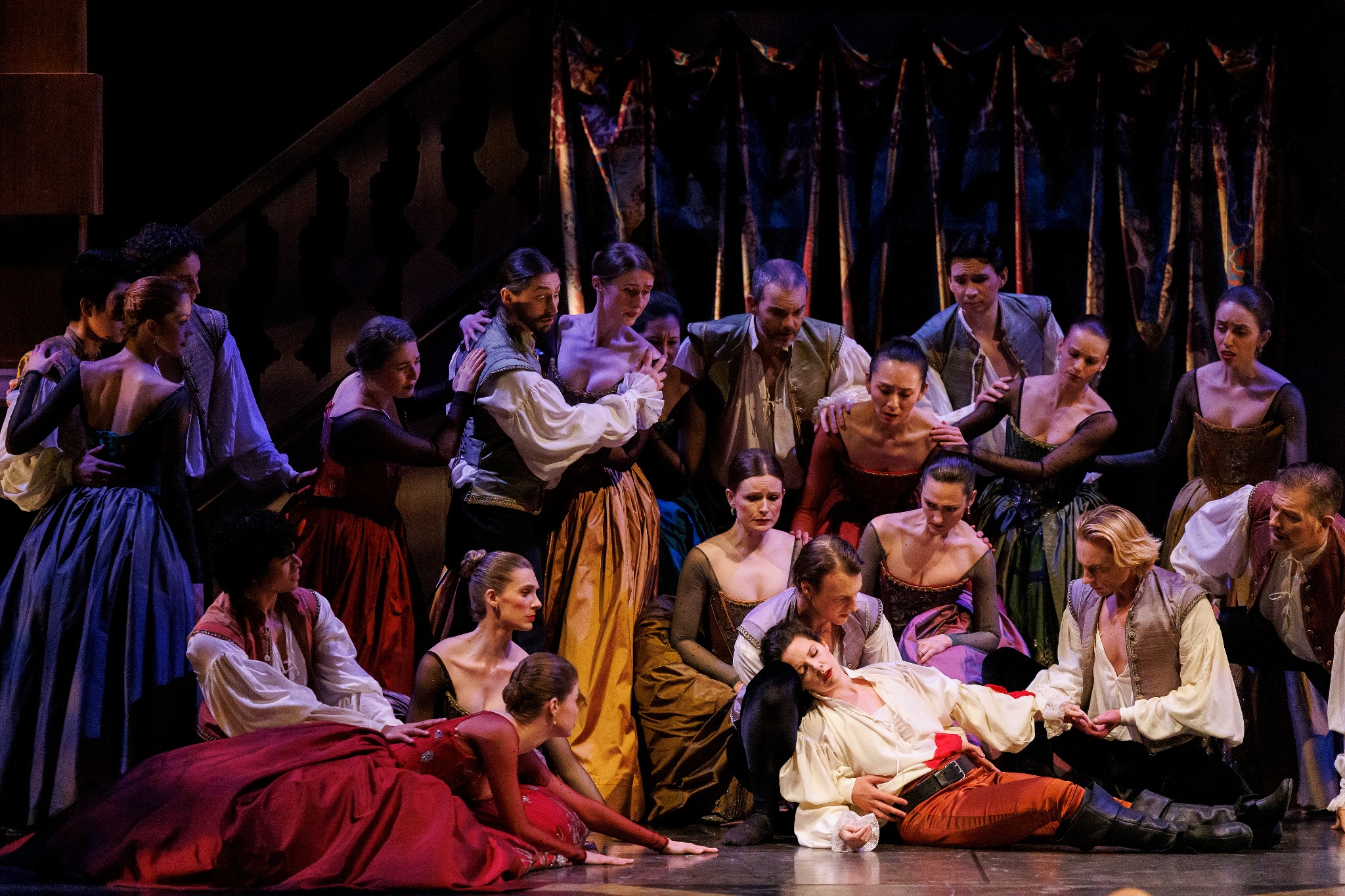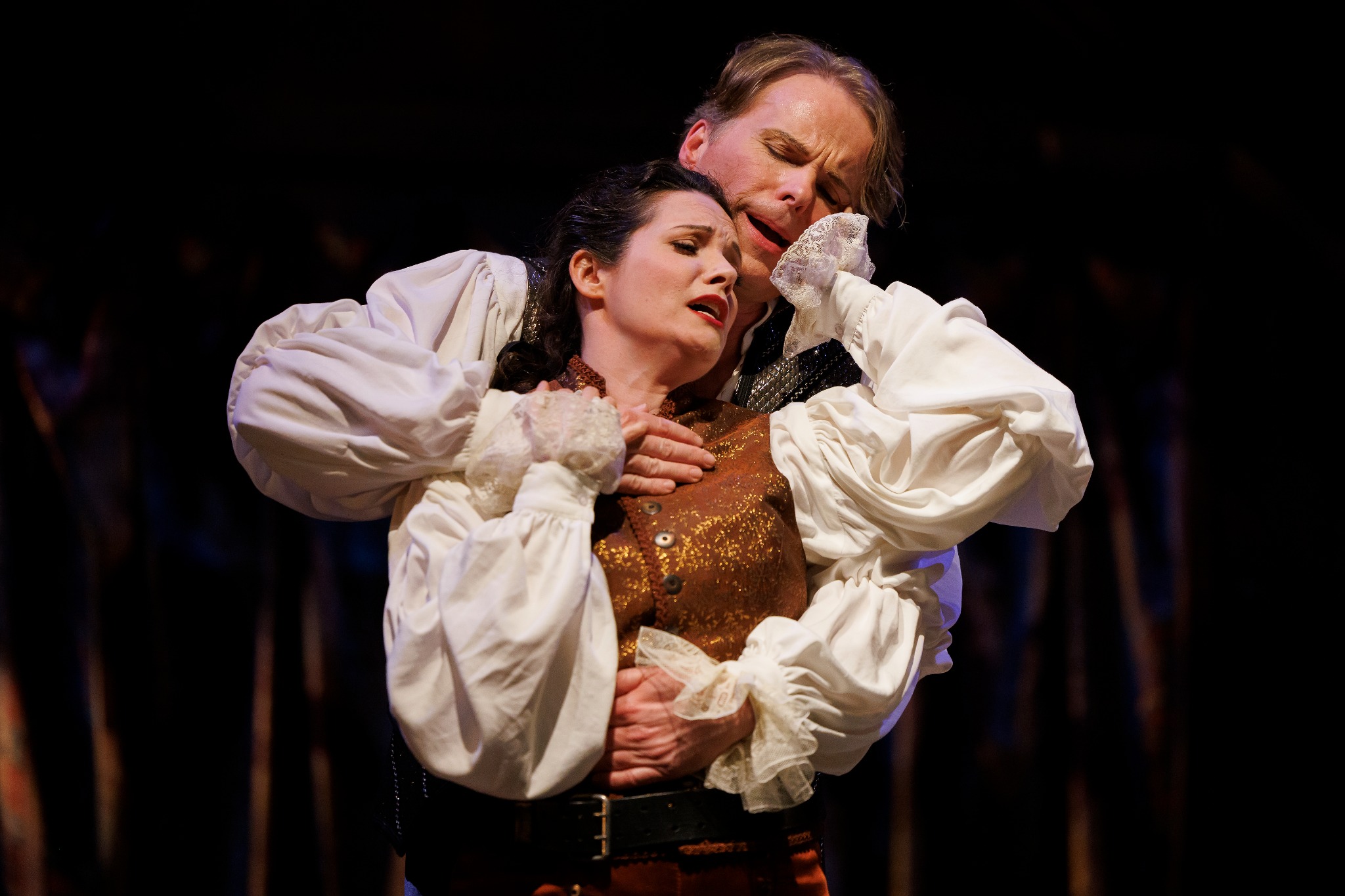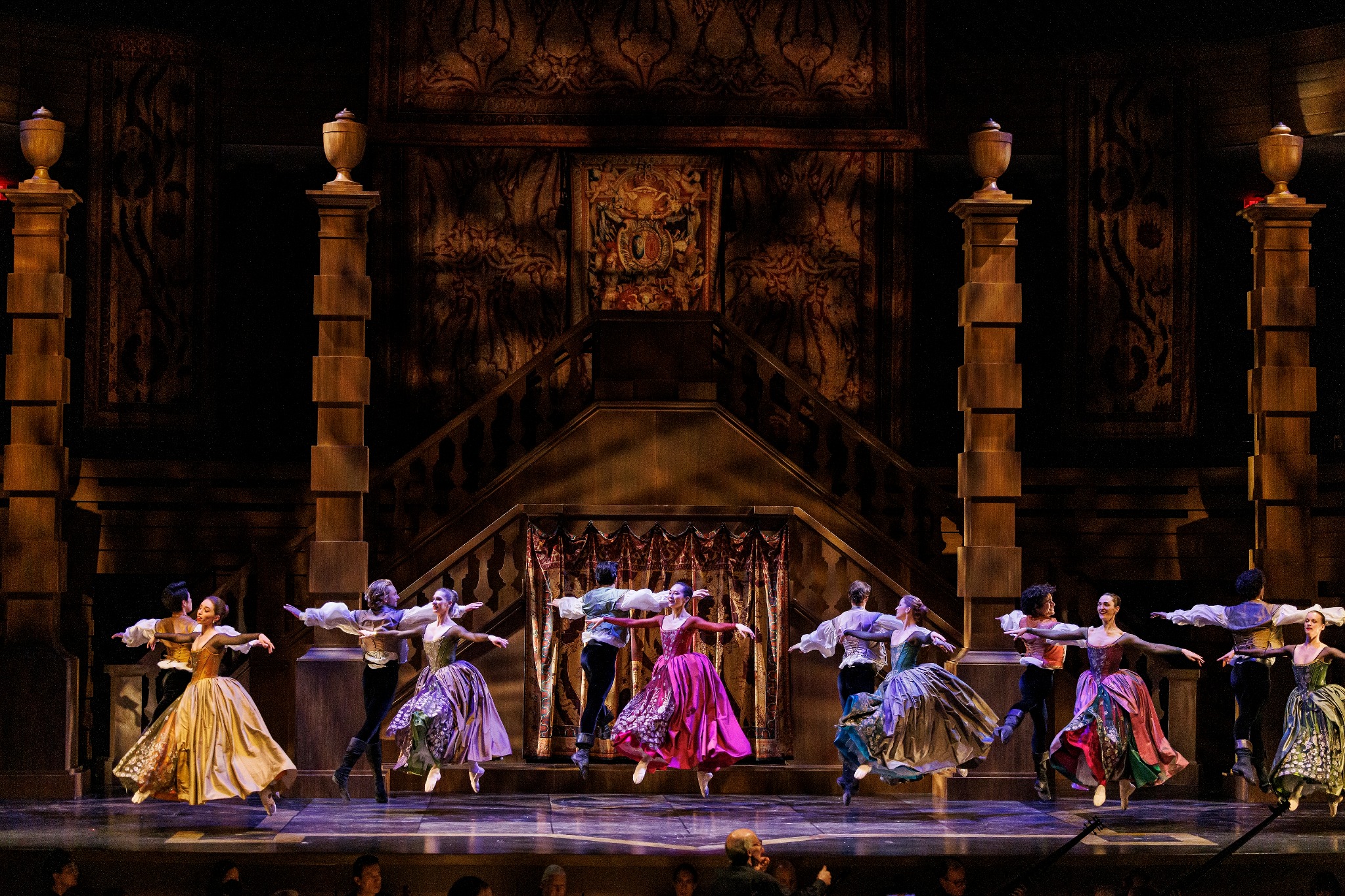Review: Charpentier’s David and Jonathan (Opera Atelier)
One of my favourite things about Opera Atelier is the adorable married duo at its helm. Led by director Marshall Pynkoski and choreographer Jeannette Lajeunesse-Zingg, the two first met in a Toronto ballet class in the early 1980’s and bonded over their shared love of baroque music, opera, and dance. In 1985, they launched Opera Atelier in Toronto, and this production of Marc-Antoine Charpentier’s David and Jonathan marks their fortieth anniversary season.
Forty seasons is no small feat, and the company meets the moment with a large and lavish production—one that brings together powerful vocals, a full corps from the Artists of Atelier Ballet, and theatrical flair in true Opera Atelier style. This is not its first stop either; the work excitingly arrives in Toronto fresh off performances at the Royal Chapel in Versailles and the Potsdam Music Festival.
For some background on the opera: Charpentier’s David and Jonathan is a 17th-century work, drawn from the books of Samuel. It follows King Saul’s unraveling, driven by jealousy and a dire prophecy. Saul (French baritone David Witczak) visits a witch—the Pythonisse (mezzo-soprano Mireille Lebel)—who summons the ghost of the prophet Samuel (bass-baritone Stephen Hegedus) to deliver a grim vision: he will lose his crown, his son, and his life. David (tenor Colin Ainsworth)—the same David who defeated Goliath—has become a beloved warrior and musician, which threatens Saul’s crown and fuels resentment towards him.
The focus then shifts to the deep, loving bond between David and Saul’s son, Jonathan (soprano Mireille Asselin), even as the two are drawn into opposing armies. What follows is a slow build towards the inevitable tragedy. In the final act, Jonathan is mortally wounded and dies in David’s arms. Saul, seeing that all is lost, takes his own life. Though David is declared the new King, the moment is hollow. His final line says it all: “I have lost all that I love – for me, all is lost.”
At the heart of the opera is the intimate connection between David and Jonathan. While different stagings have interpreted their relationship in various ways, I appreciate that Opera Atelier leans into its romantic nuances. In a poignant duet, the two share a moment so tender it nearly culminates in a kiss, making their looming separation feel all the more tragic. Jonathan’s line, “Is there any grief like my grief?” is full of operatic heartbreak, and speaks to the emotional weight carried by both characters throughout the opera.
The production features a large and impressive cast, with tenor Colin Ainsworth leading as David. His voice carries lots of power and warmth, paired with expressive acting that makes every moment land. Ainsworth truly continues to prove himself as an operatic legend in Canada. Jonathan, played by Mireille Asselin, is a great partner to him as she brings clarity and a sweetness to the role and relationship.
Ainsworth and Asselin are joined by two of the principal soloists from the original Versailles production: French baritone David Witczak, who brings great intensity to the role of Saul, and tenor Antonin Rondepierre, who makes a strong return as the scheming Joabel, a commander in the army who fans the flames of war between the two sides. The cast is beautifully supported by the exquisite Tafelmusik Baroque Orchestra and Chamber Choir, whose presence really takes the sound up a notch.
The choreography by Jeannette Lajeunesse Zingg, performed by the Artists of Atelier Ballet, flows seamlessly throughout—bridging transitions, amplifying emotions, and giving the dancers space to act as well as move. What I love about Opera Atelier’s approach to dance is that it’s never treated as ornamentation—it’s narrative, it’s expressive, and it’s essential. This time around, my favourite moments came from the sword fight sequences, where choreography met combat. The rhythmic clanking of the swords added a whole extra layer of drama and tension.
The commitment to theatricality doesn’t stop at the choreography. Opera Atelier fully embraces the drama of this work—from characters emerging through clouds of smoke to full-bodied collapses to the floor. The opening scene is especially striking: thunder cracks, a prophecy unfolds, and dancers in blue unitards circle the singer with contemporary-inflected ballet movement that adds texture and energy. It’s a bold and captivating start that sets the tone for what’s to come.
Before any of this began, the evening opened with a performance of “O Canada,” a tradition I’ve seen more often at performances lately. It’s a small but meaningful gesture, one that grounds the evening in a sense of community and Canadian identity. A lovely touch.
This staging of David and Jonathan is a fitting tribute to the company’s forty-year legacy—thoughtfully directed, beautifully performed, and rich with theatrical flair. Happy anniversary to Opera Atelier. To many more seasons to come!
Charpentier’s David and Jonathan, presented by Opera Atelier is playing at Koerner Hall (273 Bloor St W, Toronto, ON M5S 1V6) until Sunday April 13, 2025. Tickets run from $85 to $280 + fees. Tickets can be purchased online here.
OperaAtelier.com Socials: @operaatelier
Photos by Bruce Zinger.
Written by Deanne Kearney | DeanneKearney.com @deannekearney



0 Comments Add a Comment?